|
In June 2005, I delivered a graduation speech to my high school class that was a riff off of an infamous ‘graduation speech’ known as the Sunscreen Speech. At the time, I was more interested in leaving that place as quickly as possible than sharing any heart-felt wisdom. Now, as I take my leave from 12 years in the K-12 sector, it feels poetic to re-write this speech with my own life lessons and share it as a farewell at the end of my last year working in the K-12 system. I hope you enjoy it. Folks surviving the 2021-2022 school year:
Wear sunscreen. If I could offer you only one tip for the future, sunscreen would be it. The long-term benefits of sunscreen have been proved by scientists, whereas the rest of my advice has no basis more reliable than my own experience as a human and educator. I will offer this advice now. Young teachers - enjoy the power and beauty of your youth. Although odds are that you will not understand the power and beauty of your youth until you’re much older and your slang is outdated. But trust me, in 12 years, you'll look back at photos of yourself and recall in a way you can't grasp now how much possibility lay before you and how your hope, energy, and enthusiasm is such an incredible asset to the field of education. Don't stress too much about having a solid plan for the future. This does not mean that you don’t plan, but pause when you have something about 80% of the way worked out. I’ve found that the last 20% of your plan comes quickly once the moment to enact your plan has arrived. It also leaves you open enough for any unanticipated adventures that come your way. Teachers - try new instructional strategies that interest and scare you. It can feel very risky to plan a lesson that fails epically, but you will learn more from that one lesson than years of always playing it safe. Sing. In your classroom. In the hallways. Know the difference between control and structure and what it looks like in your classroom, school, and team. The only person you have any right or power to control is yourself. However, structure is about support, is always open to conversation, and thrives on meaningful partnership with stakeholders. For teachers, this means you should always see your students as partners in your learning environment. Smile. Especially during the first week of school. Every single person you meet has a unique strength and perspective that is brilliant and valuable. Take the time to learn about each person you meet and find ways to cultivate and enhance that brilliance. It’s more fun and rewarding than seeking areas for improvement. Remember the colleagues and students who inspired you and fill you with joy. Forget those that hurt you and brought you pain. If you succeed in doing this, let me know how you did it. Keep your old notes, cards, and pictures from students. Throw away your old performance reviews. Laugh often. Laugh more often if your laugh is contagious. Don't feel guilty about the things you don’t get done. There is an infinite amount of work that is impossible to complete, especially in education. Make connecting with loved ones, hobbies, and self care just as much of a priority on your to do list for work. Don’t focus so much on productivity that you forget to live your life. Your task list will always be there. Get plenty of sleep. It makes you more kind. You never know when someone will need the sunshine you can bring to a space. Maybe you'll stay in the classroom for 30 years, maybe you won't. Maybe you'll stay in education, maybe you won't. The circumstances of whether or not you experience burnout is never an indication of your value, resilience, or competence. In an ever-changing landscape, we are all given different challenges during our time in education, many due to chance. Whether we are given challenges that allow us to remain whole and stay in the field are largely out of our control. Don’t judge yourself or others for the way their journey is unfolding. Compassion and generosity are important not because they benefit other people, but because it makes you a happier, kinder person. Diversity is essential to tackle the most challenging problems. This includes diversity in identity, perspective, strengths, struggles, and approaches. We all benefit when our workplace is a safe place to be ourselves. Always have a dance playlist ready. Just because you’re good at something, doesn’t mean you should do it. Your talent is not an IOU to the world. Make friends with people different from you. It makes you kinder and smarter. Stay off social media. Or at least be very intentional about the way you use it. In an economy where your attention is money, be hesitant to let the companies stealing your time also profit from your pain. Personal development is anything but selfish. Those who do the best job supporting others know who they are down to their core. People and circumstances will come and go, but at the end of the day, you have to live with yourself. Get to know your students’ parents. They can be incredible partners. However, take the time to partner with your students and be transparent with them. You’d be surprised by how many times they have the best solution to support themselves. Perfectionism is a self-destructive mindset. Learn to embrace all parts of yourself, especially your faults. It makes you more human and gives others permission to be authentic. Spaces where people can feel safe being authentic are priceless. Live in the same city that you teach, but leave before it changes you in ways you don’t want. Teach in the neighborhood you live, but leave before it makes you jaded. Never underestimate the power of emotions. They are essential to understanding our experiences as humans. Taking the time to build emotional literacy is a lifelong investment, but so incredibly worth it. Respect boundaries, including those set by yourself. Revisit them periodically as your life changes. Make decisions grounded in your values and goals. When in doubt, choose the option that maintains expectations for folks without sacrificing their humanity. Love with a wide-open heart. The more love you give, the more love there is around you. Be careful whose advice you take, but be patient with those who supply it. Advice is a form of nostalgia. Dispensing it is a way of fishing the past from the disposal, wiping it off, painting over the ugly parts and recycling it for more than it's worth. Know by listening you are giving that person an incredible gift of making something old, new and valuable but it does not mean you have to take it all to heart. Times change and your new world may not call for the same wisdom. But definitely trust me on the sunscreen.
2 Comments
This post returns to my series called The Gifts of Education, where I reflect on skills I have gained over my 12+ years of experience in education. Recently, I have been reflecting on how my experiences have given me strong skills in project management and consulting - areas I am aiming to pursue in my next chapter. My time as a classroom teacher laid the foundation for these skills - backwards planning a math unit in collaboration with a team of teachers required an immense amount of organization and planning, not to mention the ability to remain flexible as conditions change. This served me well as I embarked on larger-scale projects in later roles, all requiring multi-department coordination, communication, and collaboration. After teaching, I had the opportunity to engage in several projects as a Professional Learning Specialist. In this role, my main responsibility was to help improve the quality of professional learning being provided by departments in the division of Student Equity and Opportunity. Much of this required me to collaborate with subject-matter-experts (SMEs) that were presenting content far outside my area of expertise. For example. I worked with the nursing department and vividly remember the training on feeding tubes for school-based nurses (I also remember how queasy it made me). I enjoyed consulting with a wide variety of departments to determine which components of the professional learning experience needed the most support. From designing an automated certificate solution to co-designing a full series of sessions, I enjoyed determining what each team needed and helping them find a sustainable solution. Looking back, I realize what I loved about this job was the same thing I loved about teaching - I got to build strong relationships with folks and co-create something meaningful together with tools from my skills tool belt. Sometimes, the project would even require me to build more skills, which made me love it that much more. For example, I worked on a division-wide Bias and Equity Hybrid training series that increased my understanding of DEI work. I coordinated a division-wide, gamified Google training in collaboration with another team that showed me how to effectively coordinate and collaborate across an organization. Looking back on this role, I am most impressed that I accomplished all of these things in the span of less than one year, when my team was effectively dismantled and another opportunity came my way. As a Digital Coach, I had the unique opportunity to support the launch of the 1:1 Chromebook Initiative for my district but providing intense support for a major high school. While I primarily focused on the people-side, I also collaborated with those supporting device management and repair to ensure a seamless experience for staff and students. Over the span of two years, I worked with the school's leadership team to ensure technology could be used to compliment and accelerate the school's vision for learning. I provided individual teacher coaching, professional development, and guiding resources to ensure we capitalized on the platforms available to us from the district. We were able to create a blueprint for meaningful technology integration that I later used to launch another high school with their 1:1 Chromebook initiative. Coming back to this school years later, many of the foundations laid are still rock solid. At the height of the pandemic, I used the blueprint I created with my previous schools to launch two separate Learning Management Systems (one for grades K-5 and one for 6-12). Through a human-centered approach, I coordinated support for staff, students, and parents across the district. We created video tutorials, resource documents, and troubleshooting documentation in a matter of months. I established regular lines of communication across teams to ensure everyone had the information they needed to provide quality support. Additionally, I included departments who provide specialized services to students early in the process to ensure we had accounts and guidance for all staff involved in a student's education. We ensured all parent-facing videos and resources were translated into all the languages supported by our district. As new ideas to support each platform better were imagined, we made them a reality. It was a massive undertaking and I'm proud of what we were able to pull off as a team. On the technical side of this role, I was also able to coordinate and collaborate with vendors, specialists, and analysts to support the technical side of the platforms. We had three system integrations that needed to be managed and supported. With increased use of each integration, it was important to iterate on the implementation of each process to ensure support sustainability. For example, we tripled the number of schools utilizing our gradebook passback system. We needed to ensure we could adequately support school onboarding and troubleshooting with the same quality and no additional help. I developed an onboarding course designed to better check for user understanding and created additional resource videos to support staff. This ensured the number of issues experienced did not increase with the number of schools accessing the integration. I am proud to say that we were successful with this endeavor the documentation we created is still used to support schools today. Similarly, I had the opportunity to collaborate with a small group to improve the user experience for the integration between our LMS and HR credit system during this role. The district went from few folks using the system integration, to requiring it for all Academics division professional development starting in fall 2020. At the beginning, the number of incidents coming to the IT desk was overwhelming. By combining our collective expertise across each system, our collaborative committee created solutions that ensured a smooth experience for participants and facilitators. Within three events, the number of incidents was negligible and we decided to disband our working group as we did not know what more we could accomplish. Across all of these roles, I found that what I enjoyed most was the moments where I became obsolete - When my students started running the classroom. When folks could create their own certificates and design their own high-quality sessions. When a teacher could generate a tech-enhanced lesson independently. When a school no longer needed support with an LMS strategy. When processes began to run themselves. When the students became the teachers. This level of capacity-building is what I love most. I am excited to take my skills and passions with me to the next part of my journey. Just like consulting and project management has always been a part of my work in education, I imagine education will always be a part of my work in consulting and project management. My experiences are a gift I will continue to carry with me wherever I go.
With this in mind, I wanted to write a piece with recommended Dos and Don'ts when celebrating teachers this year based upon my experience as an educator and conversations with colleagues. When celebrating a profession that is notoriously undervalued, it is important that we do what we can to get it right. DO Acknowledge Physical, Mental, AND Emotional Labor As mentioned in my previous post, we often ignore the impact of emotional labor and acknowledge it as equally strenuous as physical and mental labor. The story often told is that the joy of making an impact on students should somehow negate the toll of emotional labor and that the feeling of making a difference should somehow make up for the lack of monetary compensation. From my experience, this year has been the hardest in education largely because the workload of emotional labor is higher than ever. While thanking teachers, make sure to acknowledge the challenges of this year and validate the exhaustion generated from all kinds of work. This does not mean dwelling in the hard times; however, failing to acknowledge the realities of the current moment denies teachers the chance to be seen and held. Make space for it all. DO provide gifts/treats other than food While food is often used as a treat for celebratory purposes, I caution us to be mindful of the unhealthy relationship many folks have with food/drinks as a coping mechanism to handle stress. In a world where teachers are not compensated adequately, food is often used as a cheap alternative to expressing appreciation. For me, this turned in to an unhealthy association with food (especially sweets) as a means for feeling appreciated and managing work-related stress. I challenge us to find a variety of gifts that allow everyone to feel appreciated without having to indulge in unwanted behaviors. Alternatives might be notes from students and families, community-building events, or unstructured time to use as they see fit.
DO NOT call your coupon a 'gift' Many vendors offer a Buy-One-Get-One offer, which requires educators to spend money in order to access appreciation. To me and many educators, this comes across as a clear marketing ploy, designed to boost sales. If something is truly a gift, there is no expectation for anything in return. DO NOT shame or exclude those deciding to leave the profession As someone who has decided to leave the K-12 industry, I know all too well the heartbreak that goes into that kind of decision. I am not leaving because my passion is gone or I have stopped caring about students - quite the opposite. My decision to leave is about boundaries and creating a life that allows me to be whole for myself and those I love. Education in its current form is not a place where everyone can thrive. We need to appreciate everyone in it - those who have given themselves to education including those who know and value themselves enough to make the hard decision to leave. DO Vote for Policies and Funding that Support Schools Perhaps the best way to show appreciation for the work of education is to vote for policies and funding that support educators. As someone who has spent the past twelve years in education, I know that the amount of funds allocated to provide supports and services are severely inadequate. The laws passed with the intention of accountability put counterproductive stressors on schools and measure narrow views of student success that further marginalize those further from opportunity. It is time we trust the professionals who are experts in supporting students and provide them with the resources and dignity owed to the important work of shaping the next generation - vote accordingly. What do you think? What are your Dos and Don't for celebrating Teacher Appreciation Week?
This week, I re-entered the classroom to teach 3 sections of biology. While this post will not talk about the circumstances leading to this shift, I do think it's important to note that it was complete my idea and I am super excited that I have this opportunity. It feels like the most poetic way to end my time in K-12 and am excited to share my experience as I round out this school year. This week, I started all of my classes with my favorite team-building puzzle. When I used this activity as a math teacher, it was originally framed as the wolf, goat, and cabbage problem. From Wikipedia: "Once upon a time a farmer went to a market and purchased a wolf, a goat, and a cabbage. On his way home, the farmer came to the bank of a river and rented a boat. But crossing the river by boat, the farmer could carry only himself and a single one of his purchases: the wolf, the goat, or the cabbage. If left unattended together, the wolf would eat the goat, or the goat would eat the cabbage. The farmer's challenge was to carry himself and his purchases to the far bank of the river, leaving each purchase intact. How did he do it?" When I taught math before, I simply presented this problem to students and suggested they use arbitrary objects around them to act the story out. I didn't have the resource to buy goats, wolves, or cabbages and had never thought to do so, especially since I didn't think my 11th and 12th grade students would take it seriously if they had toys on their desks for the first day of school. This time around, I knew I would be presenting the problem to 9th grade students and the idea of talking about wolves, goats, and cabbages seemed pretty.... boring and outdated. I knew it was a good puzzle and I wanted to use physical manipulatives to increase engagement, but I also knew it wasn't the best I could come up with and kept thinking about how to make it better. Then, while playing with my kiddo before bedtime I had an epiphany. The next morning, I gathered my kiddo's toy dinosaurs, plastic trees, and Duplo figurines. I hot-glued popsicle stick rafts together and packed them all in my bag for school. Feeling concerned, my kiddo asked "Mommy, what are you doing with my toys?" I promised him that they would have a great adventure and I would take videos and share when I got home. With great hesitation, he agreed and I was on my way for my first day of teaching. with To modify the problem, I changed the characters in the story to be more relevant (and fun). We were on a unit about evolution and learning about cladograms, which are diagrams that show the relationship between organisms - kind of like a family tree but for species. I decided that we would feature our story on carnivores, herbivores, and prehistoric trees. My explanation went something like this - "So, you have a carnivore, an herbivore, and a prehistoric tree with you in the jungle. You come to a river with a raft and you need to cross the river with all of your creatures. The problem is, you can only take one creature with you at a time. If you leave the carnivore with the herbivore, it will eat it. If you leave the herbivore with the tree, it will eat it. How can you get everything across without anything getting eaten?" I would then act this out with a duplo character, some dinosaurs, a tree, and a popsicle stick raft. Obviously, the students had great questions to which I had to come up with quick answers. "Why doesn't the carnivore eat the person?" - the person is like Owen Grady and can control the carnivore, but only when they are around it. "Can two creatures go on the raft together and the person stays behind?" - Nope. The students proceeded to act out the story with the toys. I recorded solutions with the students on my phone to share with my son. When the group presented a solution that didn't work, I would eagerly take up the dinosaurs and say "nom nom nom nom" while pretending to chomp the creature left behind to get eaten (the herbivore by the carnivore, the tree by the herbivore). It was incredibly fun and so satisfying to see students playing with toys while learning. Many shared their solutions while narrating the story with lines like "So Ironman is going to then take this T-Rex across" and "Then Captain America takes this fool so he doesn't get eaten by the Raptor." The combination of puzzle-solving, play, and storytelling was fantastic. Thankfully, all of my kiddo's toys made it home safe and sound. There was a moment when Elsa, Anna, and Batman went missing and I was worried about what I was going to do to make it up to my kiddo. The next morning, I looked in the lab and found all three of them on a window sill, gazing at the park across the street. It was the perfect image to capture the beauty, joy, and peace I feel about this end to my journey in K-12. It is also a great reminder of the importance of play in learning and inspiration for me to take this wherever I go.
This month, I have been celebrating and reflecting on Women's History Month more than ever. I've found myself consuming content celebrating women and reflecting on the challenges facing women on a daily basis. I've even found myself being bolder than ever in naming patriarchal practices and systems and challenging them. What makes this year different? I'm also reflecting hard on the field of education. With a female-dominated workforce, it should be no surprise that the challenges facing education are often the same challenges facing women. Just to name a few:
We should all be feminists One of my favorite TED talks is from Chimamanda Ngozi Adichie called We should all be feminists. Her perspective and delivery of the importance of feminism is masterful. She swiftly pushes against the misconception that feminism is about hating men while illustrating the microaggressions experienced by women on a daily basis that are harmful to everyone. Her book with the same title is a quick read worth digging into.
Books I've Read
My Family
This post would not be complete without mention of my family. I grew up with 4 younger sisters and parents who always told us there was absolutely nothing we couldn't do. They believed every dream we had for our future was a good and valid one simply because it was ours. My mother modeled strength and care as she managed our household. It was challenging to juggle all of the moving pieces, but she did it with immense love and honesty. My dad was far ahead of his time - truly valuing women as completely equal in value to men. At the time, this wasn't remarkable to me. It was a foundational cornerstone to my upbringing to appreciate the unique contributions each person brings to the world and not see anyone as better or worse than anyone else. I didn't understand why the other moms flocked to my dad on the sidelines during soccer games, but I get it now. The simple act of treating them with equal dignity and seeing them as equal partners in this world was a revolution all on its own and contrary to so much of what still happens in society. It's this partnership that made my parents a great team - each seeing and valuing each other's strengths and what it brought to our family. While I have done a lot of research on feminism since, it is this upbringing that keeps me grounded and holds me steady. This foundation helps me see how dismantling gender discrimination will be necessary to move forward on the issues facing the field of education and we must all do out part. I would like to close this post with a quote from Emma Watson. My dad casually referenced this quote one afternoon while discussing problematic patriarchal behaviors and how eliminating gender stereotypes frees everyone. When I laughed at how easily he pulled this reference, he didn't understand how rare it was for a man to care so deeply about gender equality, much less be able to quote a woman for rationale on why it is important. I can only hope that we see more people like this in the next generations to come. "We don't often talk about men being imprisoned by gender stereotypes... but I can see that that they are and that when they are free, things will change for women as a natural consequence. ~Emma Watson Welcome to another post from my series called The Gifts of Education. In this series, I am reflecting on the skills and experiences I have been gifted over my past 12+ years in education. In this post, I wanted to share some of the ways education has made me a better communicator. I hope you enjoy this post, along with others in the series, as much as I enjoy writing them. When selecting a major for college, I would be lying if I didn't say part of the appeal of majoring in math was the lack of writing classes. It's not that I was bad at writing, I just didn't like it. I felt clumsy and struggled to put my thoughts into words that were received how I intended. I frequently felt misunderstood and found myself preferring to say nothing at all. This made it easy for my high school English teacher to persuade me to take the AP exam, despite never taking an AP course. I saw it as my ticket out of having to take any more writing classes. Luckily, I managed to pass with a 4, earning a waiver for my writing credits. I never took a single English or writing class ever again. This is not to say that I didn't have other forms of education when it came to writing. There is nothing that pushes your communication skills quite like scripting out a lesson plan focused on explaining complex mathematical concepts in ways that are both accessible and mathematically accurate. To add another layer on top of it, imagine you are teaching those mathematical concepts to multilingual learners who will also need support with the English vocabulary and syntax that accompanies these lessons. Nothing pushed me more to improve my communication than being responsible for supporting both the math and language development of my students. I learned how to communicate concisely with incredible precision in a way that built a common understanding. In education, there is no debate - it is your responsibility as the teacher to communicate in ways that are well understood by your students with all of the accompanying complexities. Those who can create productive feedback loops (also known as checks for understanding in teacher talk) are able to perfect the strategies that prove most effective. Put another way - by taking responsibility for communicating effectively and repeatedly asking for feedback on that communication, I have refined this skill into a creative art that bring me great joy and makes me a great facilitator and communicator. Thank you to all of the students and colleagues who have given me feedback over the years to help me become the communicator I am today. While I will always have a lot to learn, I know how much I have grown. Reflecting over the years, below are some of my most proud and favorite moments that come to mind when it comes to communication and some side-note commentary:
Overall, I've learned that communication can take many forms and the most important thing is that you find what works for the idea you are trying to convey with your target audience. Don't be afraid to play with different formats - text, tables, visuals, videos, talking in person, etc. If you're unsure, build in checks for understanding to help yourself improve and let people know effective communication is important to you. As any educator will tell you, feedback is a great teacher, as long as we take the time to listen.
Welcome to the second post in my series that I'm lovingly calling the Gifts of Education. While my post on creativity focused on a more obvious change education brought to my life, I wanted to focus my second post on a less obvious skill that I have gained: the ability to form strong, productive relationships. I hope you enjoy it. A few years ago, my parents brought me some of my old belongings in boxes, many from high school. While I rarely wrote in my diary on a regular basis, I would periodically provide updates on the highlights of that current point in my life. One entry had the following line -
Now, I imagine at least some readers (especially educators) are now thinking 'If you didn't have strong relationship building skills, how on EARTH did you make it as a teacher?' It is only in hindsight that I'm able to offer an explanation for why I had a knack for building relationships with students, despite my lack of practice in my younger years.
This takes me to my first job working with ONLY adults... no students to buffer my social awkwardness, no class bell to help me escape stressful social situations with colleagues. I was on my own with just 'grown ups' in the land of cubicles and meeting rooms. As the Professional Learning Specialist for the Division of Student Equity and Opportunity, I was primarily tasked with improving the quality of professional learning across all teams - many supporting areas where I had little to no expertise. While the task seemed overwhelming at first, my manager started me off with the perfect first assignment: build relationships with each of the departments I supported. My ability to get projects (and potentially keep my job) was dependent upon the department teams wanting to work with me and finding my support valuable. Based upon my experience with students, I knew that strong relationships would be crucial to my success. While I had never attempted something like this before, I did what any good mathematician would do in this kind of situation: rework the problem a little bit until it resembled something I've already solved and then 'return to case 1' (aka, do what I did before). I expanded my previous solution to include adults, which provided me the following amended approach:
This leads me to the brief exchange I had with a teacher that I used to coach. He probably doesn't remember it, but I will remember this conversation for the rest of my life as the moment I tangibly understood my approach to building relationships. We ran into each other going opposite directions in the school stairwell and he stopped me.
I am both sad and incredibly excited to share that I have decided to leave the K-12 education system and pursue other opportunities that allow me to use the many skills I have gained over the past twelve+ years. As I seek my next adventure, it felt important to reflect on how education has shaped me both professionally and personally. My hope is to write a series of these posts to both hold the past dear to my heart while opening up to the possibilities ahead. Gift #1: Creativity
It was hard to ignore the fact by this point - I mostly created content for a living and started coloring my hair with bold, bright colors to match my love for elegant and eye-catching designs. Whether I had always been a creative person and didn't know it or education had brought out my creative side, I am incredibly grateful that I was able to cultivate this part of myself. It has brought so much joy to my work and my life and I can't imagine not having this core part of my identity. Thank you for reading my first post of this series. It feels good to blog again and use this platform as a means for reflection. I hope you'll join me for my upcoming posts, where I plan to reflect on the ways that my work in education has gifted me with strengths in relationship-building, collaboration, systems-design, communication, and more.
It's the understatement of the century to say that a lot has changed in the past year. For those of us in the field of education, our world has been turned upside-down. Tech is more available with more teachers equipped with basic digital skills than anyone would have dreamed of previously. While it is by no means enough in terms of delivering on the equitable educational experience many of our students deserve, it has brought about massive change in the way we think about education and what it could and should look like moving forward. The obstacle of convincing folks that tech should be an integral part of education has been, for the most part, removed.
Prior to spring 2020, I had always taken great pride in my ability to ground my work at the central level in my school-based experience - I taught math for six years, then supported schools with instructional technology support where I was embedded deeply in a school. I felt confident in my ability to lead our use of LMSs and make changes based upon relevant knowledge of what instruction and day-to-day life looked like for teachers and students. I could make solid decisions grounded in reality and think through potential unintended consequences. Then the world turned upside-down. I'm sure for many people who have left the classroom or a school-based position, their school-based experience naturally becomes decreasingly relevant over time. Schools are an ever-changing ecosystem with a new environment crafted every year based upon changing staff, policies, priorities, programs, and any number of other circumstances. While many core ideas remain the same, there is enough change each year that it accumulates to a whole new world, given enough passing time. I believe this past year has seen so many of these changes in such a short amount of time that even if you were in the classroom and/or leading at a school for the 18-19 school year, your reference for what the school experience looks like is severely outdated. We are at a key, pivotal moment in education. While many of us have always believed a revolution was necessary, there is no doubt in my mind that now is the best time to make the changes we have always dreamed of making to our incredibly broken system. I have always been angered by the ways our current system has failed our students, especially those who are traditionally marginalized. I can't imagine how uncontrollably furious I would be if schools see this moment and watch it slip away for the sake of 'normalcy'. And if you know anything about me - I am very motivated by anger. I have learned that the things that make me the most angry, are always the things I care about the most. I don't want to be in an office attempting my best guess at what schools need to make innovation happen and slowly build structures and policies to support that change - I want to be close to the work, at the table where ideas are born and innovation happens. Based upon my experience over the past 12 years in education and my deep desire to live in alignment with my values, it was incredibly clear that I needed to be in a school where I could help be a part of what comes next. I have always been driven by a relentless passion for educational equity. All students deserve a quality educational experience that cultivates the brilliance already within them while creating an environment in which they can embrace, rather than abandon, their personal identities. We are at a critical juncture in the field of education where what comes next matters deeply for generations to come. To me, the next part of the education adventure story sounds way too important and way too much fun to miss. I am very much looking forward to being back in a school and being a part of it. As the world of education has turned more digital than ever, I continue to find myself using the lens of User Experience when advising schools on how to best use technology to meet the needs of students. I highly doubt this will be the last time I blog about this connection, as I've been fascinated by this intersection for many years now. I am convinced that by embracing this perspective, we can truly revolutionize the way both education and work are done. In my current role, I think of teachers and students as the users of our Learning Management Systems and recommend strategies schools can use to provide the best user experience possible. Below are a couple of ways this has showed up, as well as the resources I've recently used to gain additional insight and perspective for all things UX and design. I hope you enjoy my thoughts and find them helpful for rethinking ways to solve some of education's toughest challenges. Course Design - Visuals and Course Organization With instruction and professional development needing at least some asynchronous component, creating courses that are easy to navigate and visually appealing is essential to ensure strong engagement. I encourage folks to consider the basic question, "If I entered this course with no context or support, would it be clear what I need to do to be successful?" This includes clearly communicating how to best get support for the course and ways to build relationships between participants and the facilitator in a variety of formats - text, image, audio, video, etc.
Communication I like to think of the platforms I support as the learning ecosystems for users. While they may be taking their courses on the platform, I also like to consider how the platform can be used to provide other educational wraparound supports like communication, resource distribution, and potentially solve other problems facing their school. My favorite conversations with schools are those that lead to 'off-label' uses of tools within the platform to solve unique problems. For example, one school wanted to create a space for students to engage in fun online activities and social opportunities during remote learning. Knowing that Schoology is the digital 'place' where students are visiting, I know it is helpful to contain as much school business within the platform as possible. We ultimately decided to create a school-wide Schoology course to post these opportunities and bulk-enrolled every single student in the school so they would automatically have access without any action on their part. In general, I like to think of how to make it easy to do the right thing and harder to do anything else. To support schools with utilizing the platform as a one-stop-shop to it's fullest potential, I rolled out this Implementation Guide for schools. While it is by no means an exhaustive list, I think it provides some high-leverage strategies for schools utilizing Schoology in a way that stays true to UX concepts of creating the best possible user experience. Inspiration and Resources If you've read any of my previous blog posts, you may already know I'm a bit of a podcast junkie. Of course, there is a podcast where I get some of my main UX inspiration.
For all things design, I often turn back to this classic text from my days in graduate school.
And last, but certainly not least, here are some newer reads that have helped me understand more specifics about the field of UX. For those looking to browse the topic without buying anything, I encourage you to look for these books at your local library.
As I continue to continue examining how UX and education intersect, I'm sure I will create more posts to process my learning on the topic. If you have any suggestions or just want to chat about this concept, feel free to type in the comments below or send me an email at [email protected]. I hope everyone is doing well during this challenging time and is able to find the resource they need to make it through.
|
AuthorMattea Garcia is a human-centered problem-solver dedicated to improving learning and technology experiences. This blog is dedicated to reflections on leadership, educational technology, instructional coaching, educational equity, and more. Archives
June 2022
Categories |
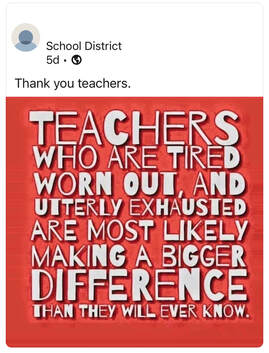
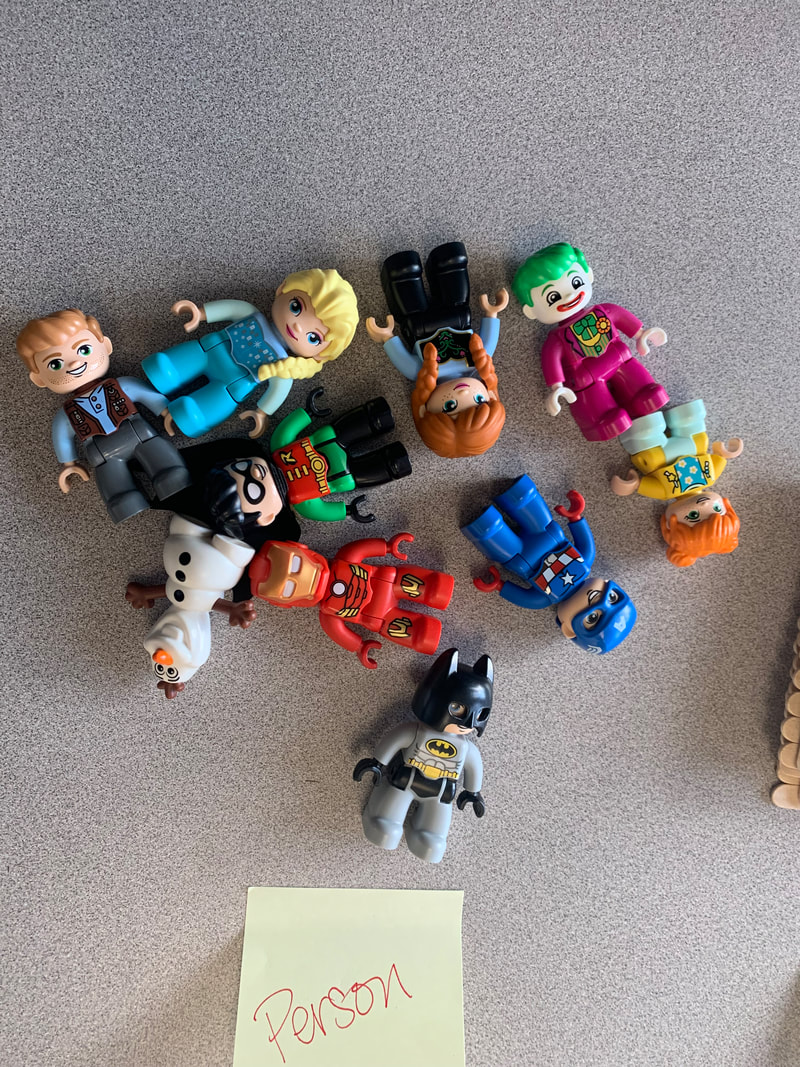
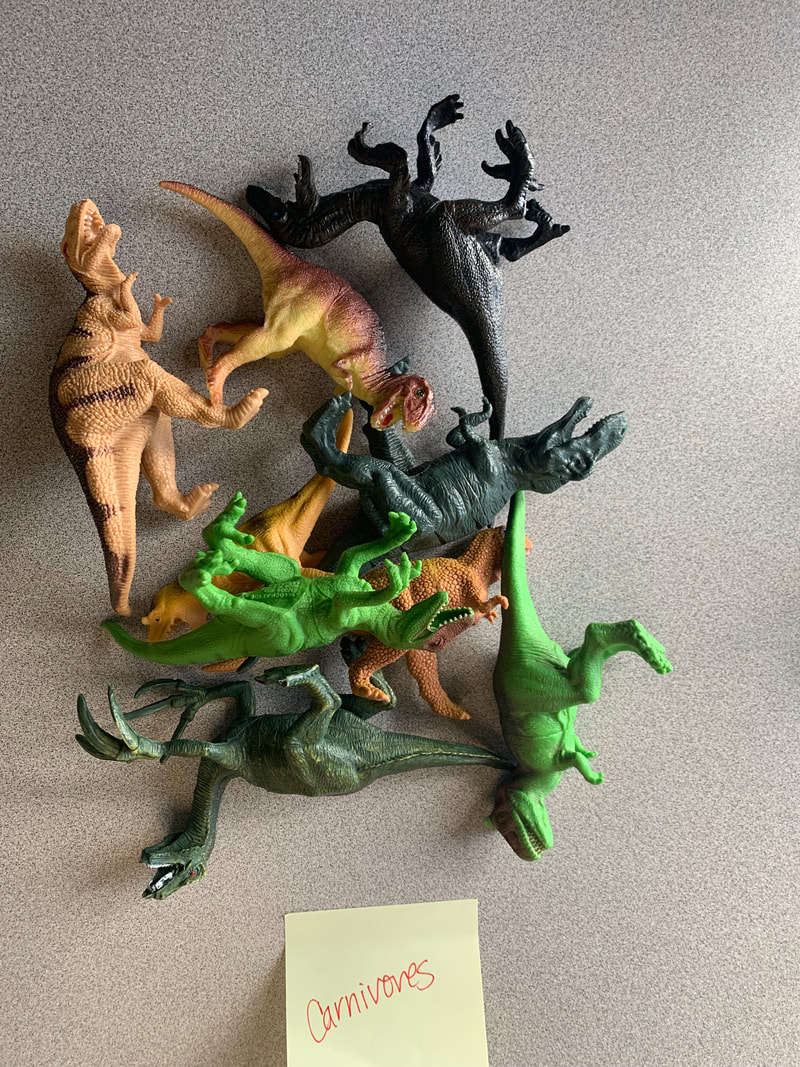
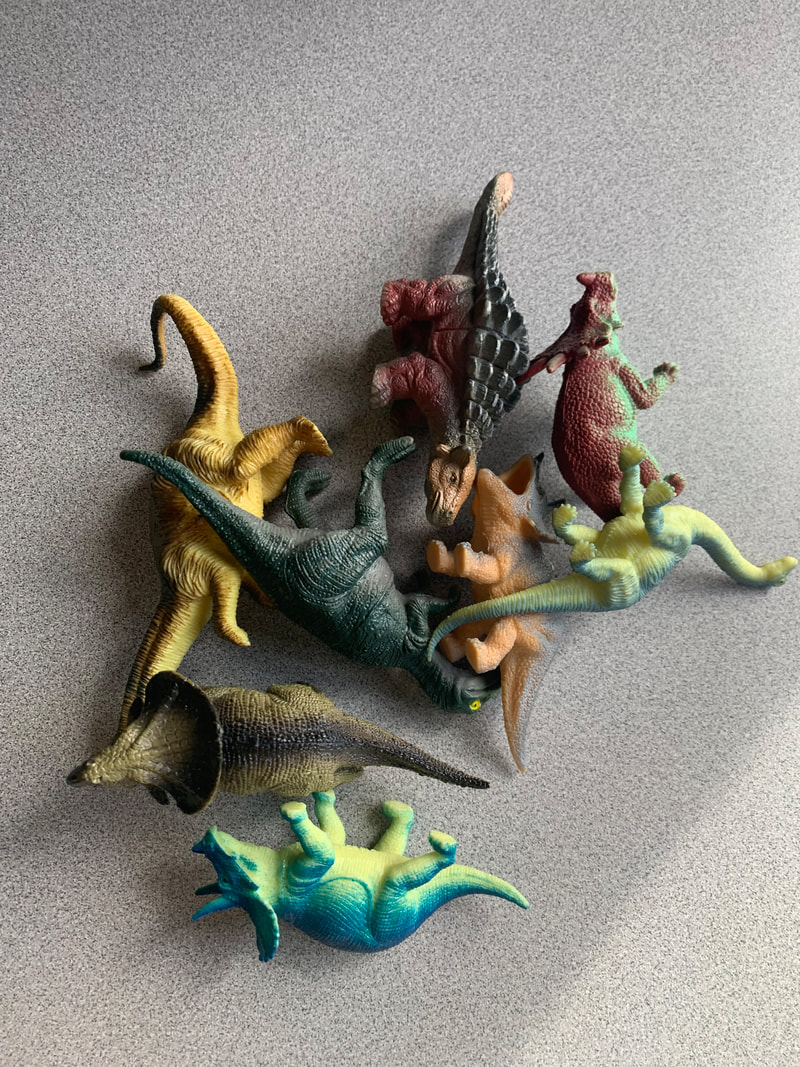
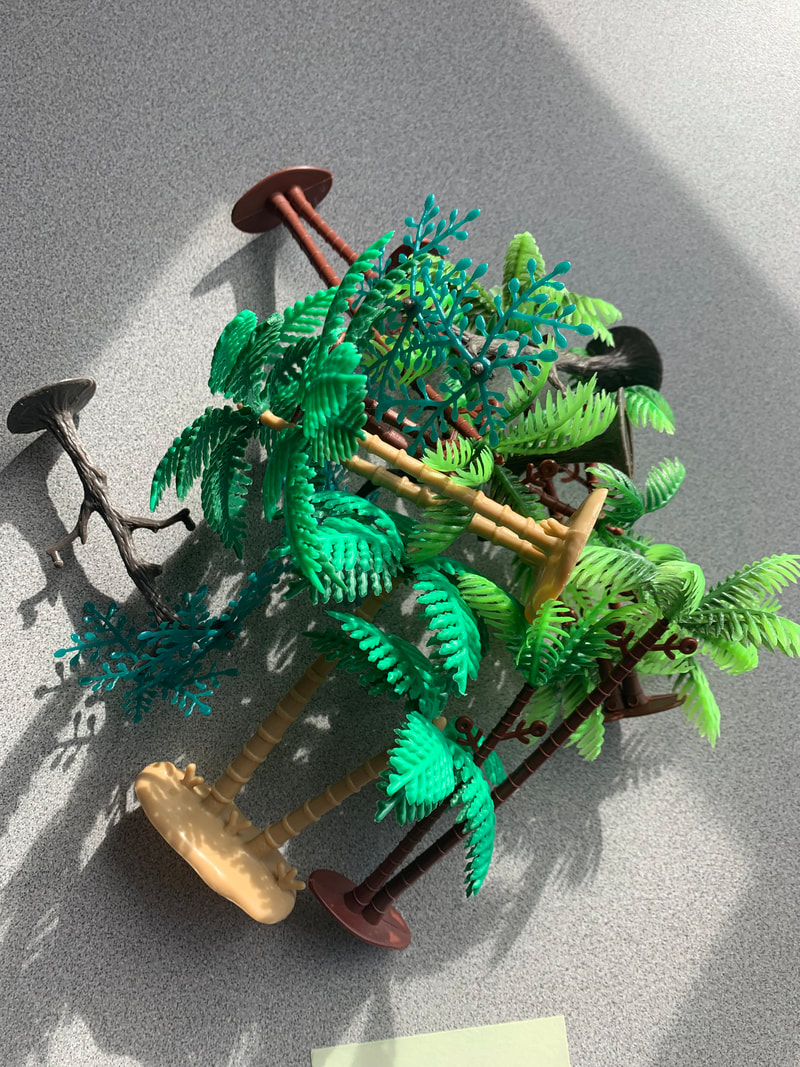
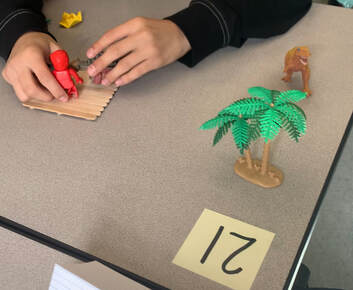
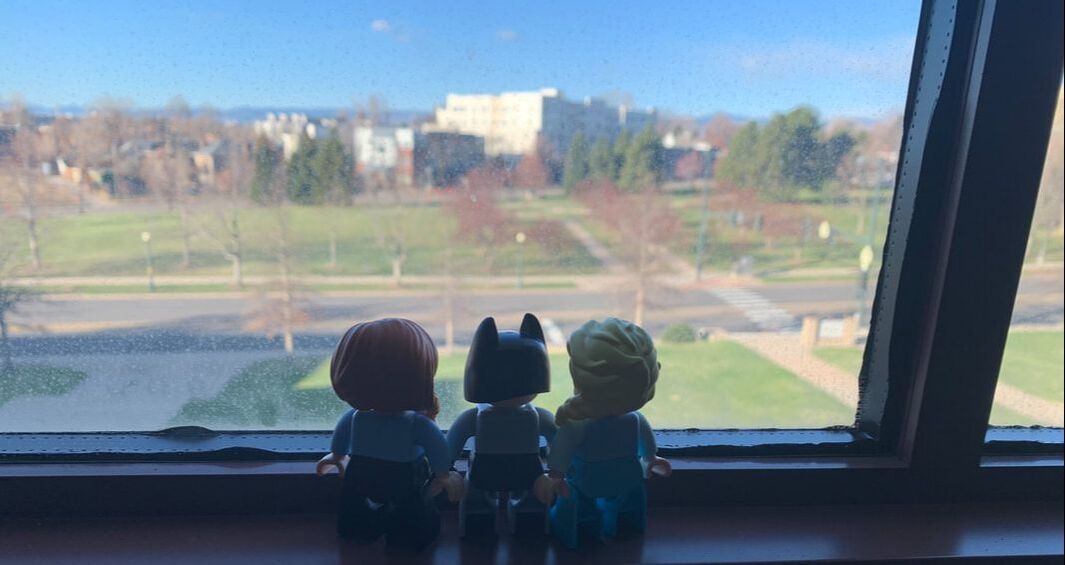
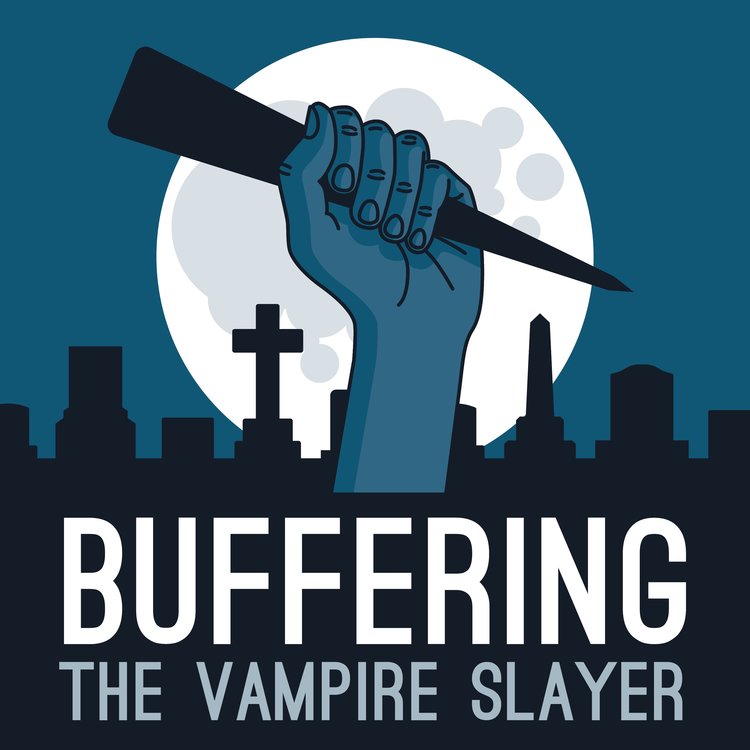
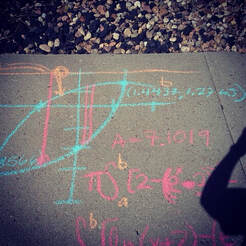
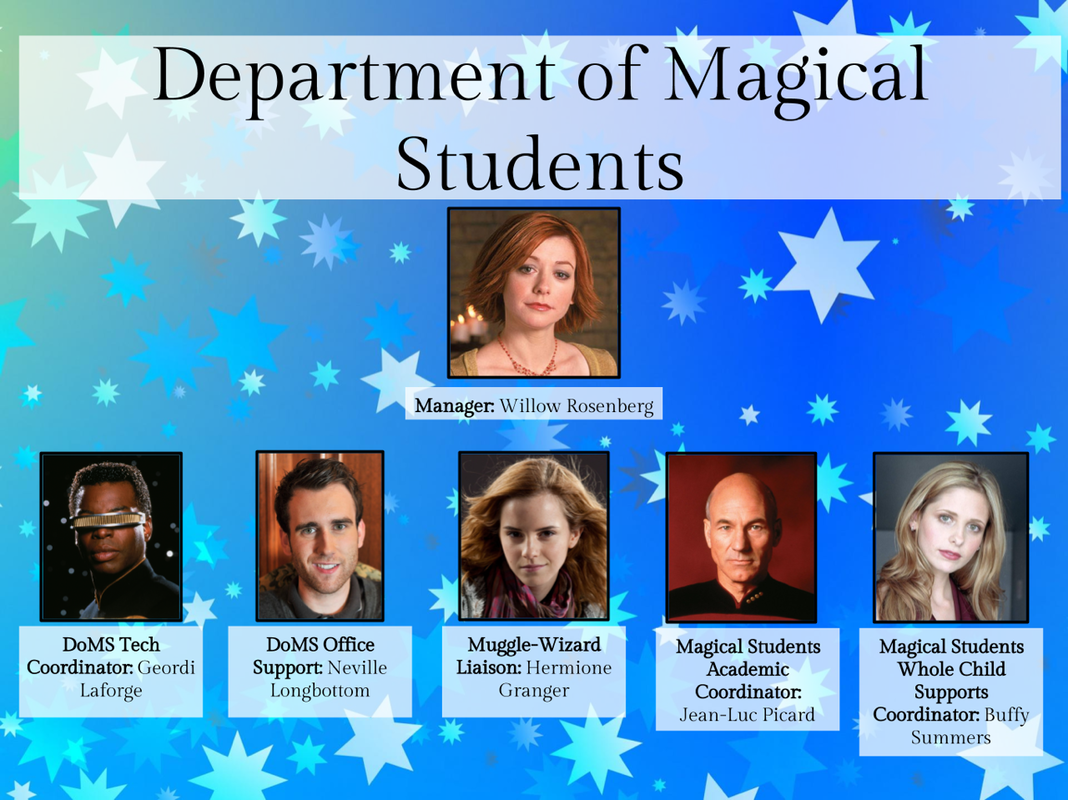
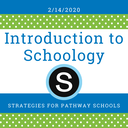
 RSS Feed
RSS Feed
